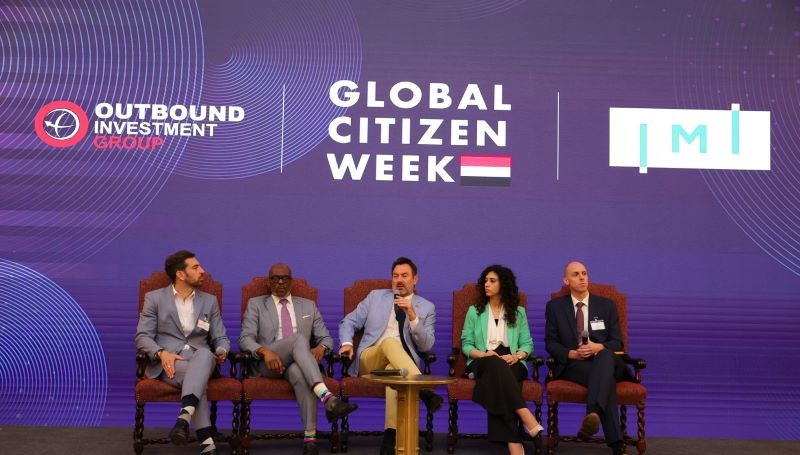Caribbean CBI MoA to Bolster Rather Than Hinder Demand, Say Experts
Global Citizen Week has arrived in Cairo, and one of the conference’s hot topics has been the future of Caribbean Citizenship by Investment Programs (CIPs).
Four of the “Caribbean Five” have signed an MoA that will harmonize the management, processing, and pricing of the region’s CIPs, excluding that of St Lucia, whose government stated it is not against signing the MoA but needs time to consider the agreement.
The “MoA coalition” set a deadline on June 30th to implement the changes.
A response to EU pressure
Signing the MoA is a significant step for the Caribbean governments, who have attempted to harmonize CIPs in the region for the past seven years.
Patrick Peters of ClientReferrals explained that “the Caribbean Five have been wanting to cooperate for a long time, and it does seem that pressure from international partners and governments was a catalyst for them to initiate this MoA.”
Peters is optimistic about the MoA. He thinks the overall reception of the development is positive, and it is being “welcomed by the industry and international governments.”
He also points out that “maintaining the long-term value of the citizenships clients are investing in is another primary objective that encouraged the governments to sign the MoA.”
Peters also believes that this strategic move will improve competition in the region. “Every time standards improve, the quality of the service providers will follow, and it will flush out some of the nefarious actors in the industry.”
EU’s stance on Caribbean visa waiver a point of discussion
The European Commission has taken its first steps to list operating a CIP as grounds for suspension of visa-free entry.
Kevin Hosam of EC Holdings, an Antigua citizen born and raised, highlighted the complexity of the matter, saying: “When I look at it as a citizen of a country that operates a CIP, my perception is very different from that of someone working in the industry.”
“It is very important for Caribbean nationals to have visa-free access to the Schengen Area, and they hold the governments responsible to safeguard that nationality,” Hosam explained.
Answering from a two-point perspective, Hosam said that “as a local, it [losing Schengen visa-free access] would be devastating. As an industry provider, though, we never used Schengen access as a marketing engine.”
Peters’ take on the possibility of the EU revoking visa-free access was pragmatic, explaining that these are “bilateral agreements based on continuous conversations and expansive relationships.”
Peters says that lumping all of the Caribbean into one category isn’t technically correct. He clarified that discussing these types of waivers is something done privately, one country at a time.
Peters also sees the EU’s steps toward adding operating a CIP as grounds for suspension of visa-free access as a preventive tool, not an immediate threat.
Peters explained that “the EU saw how complicated it was to revoke Vanuatu’s visa-free access, and they may just be laying the groundwork to make the matter easier for the future in case anything happens; it doesn’t necessarily mean they are actively looking to suspend all five Caribbean visa-free entry immediately.”
MoA to bolster demand, not hinder it
Hosam explained that he consults on second citizenship as a tool for “self-diversification, personal safety, and asset protection.” So, pondering a Schengen-less landscape, Hosam believes that it wouldn’t lower the demand.
Mustafa Mahmoud of Pass Residency agreed with Hosam’s assessment. He believes that “demand may dip when the MoA’s regulations come into force, but it will bounce back stronger.”
Mahmoud’s rationale is that it will take the market some time to adapt to the “new normal,” and once it has accepted the changes—mainly the price hike—it will “quickly return to the status quo.”
“Demand for Caribbean CIPs is growing,” Mahmoud shared, “and I think it will continue to do so after a short period of acclimation.” He also highlighted that some investors, who were reluctant before, may be “enticed by the new, robust framework and price point.”
Attendees speaking to IMI at Global Citizen Week have expressed their admiration for the MoA, but Hosam says that there is still work to do.
“One of the main issues is regulating the marketing of the programs,” Hosam continued, “governments can regulate their programs and their agents, but some actors who are not licensed and do not care about the wellbeing of the program may still do harm, the government needs to find a solution for this for the MoA to maximize its effect.”
Nisha McIntyre of My Grenada Solutions held somewhat similar thoughts, saying that the government “needs to control the narrative.”
McIntrye, a daughter of the soil who looks at the issue from both a local and an agent’s perspective, says that “unless the governments figure out how to reclaim ownership of their respective narratives from the ambits of third party operators with no licensed connection to these programs, the practice of misinformation and brand erosion will continue.”
She explained that the “reality is that a large portion of those framing the narratives that have brandished our regional programs are unregulated, unlicensed companies that are, in some cases, too far removed from the countries to consider or even care about the effects of their marketing strategies on the longevity of the programs.”
Ahmad Abbas is Director of Content Services at Investment Migration Insider and an 8-year veteran of the investment migration industry.



